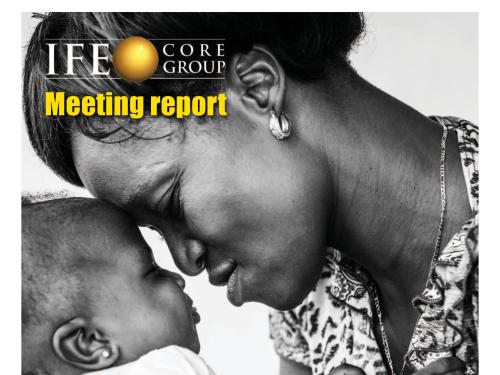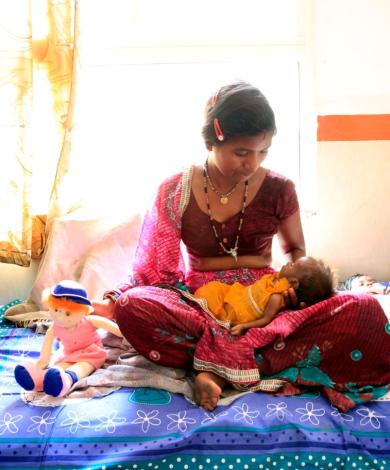What does the IFE Core Group do?
Based on the IFE Core Group Strategy, the Group aims to protect child survival, growth and development in populations affected by emergencies. Through its work, it improves the services received by mothers, caregivers and their children. It safeguards feeding and care of infants and young children in humanitarian contexts by:
- Improving the awareness of IYCF-E and what is required for timely, appropriate support and to minimise risks during a humanitarian response.
- Increasing the uptake of the IYCF-E OG through integration into relevant national and agency preparedness and response policies, guidelines, procedures and costed plans.
- Influencing progress in the protection, promotion and support of appropriate child feeding and care by mothers, families, care providers and communities.
IFE Core Group main activities and outputs
The work of the IFE Core Group is organised into four outputs, largely reflecting the main objectives.
A. Gaps, challenges and issues identified; experiences and lessons learned documented and brought to the Group and other stakeholders for action and support.
The Group tracks emerging issues and challenges related to infant and young child care and feeding in active emergencies, and brings them to the attention of its members and other relevant groups for their attention, support and action. This process helps to identify gaps in knowledge and practice and potential areas for research, which the Group then addresses. It also documents evidence, experiences and lessons learned, including those related to uptake of the IYCF-E OG and other outputs of its work.
B. Resource materials to support feeding and care of children in humanitarian settings developed and provided in accessible formats.
Building on the development and updating of the IYCF-E OG, the Group continues to engage in the translation and dissemination of the guidance. The Group also works on the development and updating of training materials to ensure that they reflect changes in the guidance. As new issues emerge and knowledge is developed which can support practice, it supports the development of stop-gap guidance materials and other resources which can support policymakers and practitioners. Such work might be led by the Group, one of its members or a third party, and members identify opportunities to feed into these processes. Members also provide peer-to-peer support through en-net, webinars and other online platforms, and by responding to technical needs as identified and shared through GNC-TA.
C. Advocacy and communication strategies developed and implemented.
The Group engages with global platforms related to nutrition and health in emergencies such as Global Nutrition Cluster (GNC) and Food Security Cluster (FSC) to raise the profile of key issues related to the feeding and care of infants and young children in humanitarian contexts. It is represented in the World Health Assembly, the World Breastfeeding Conference and during World Breastfeeding Week, in addition to other relevant opportunities. The Group develops and updates communication material related to the feeding and care of infants and young children in humanitarian contexts, as well as appropriate communication and advocacy strategies on core emerging issues.
D. Networked IFE Core Group 'community of practice' is active and further enhanced.
The Group has procedures in place to register new members and to screen and manage any potential conflicts of interests of members. It strives to improve representation in the membership by those living and working in emergency affected countries and across nationalities, ethnicities, and experiences. It also seeks to reach out to other stakeholders (working in a range of related sectors) through GNC-TA, ENN and other fora which facilitate communication with those working in relevant humanitarian sectors.
Resources
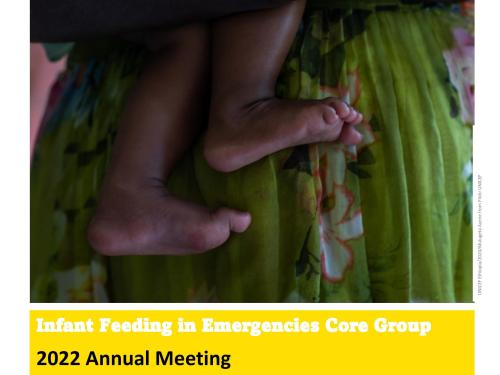
IFE Core Group Meeting Report 2022
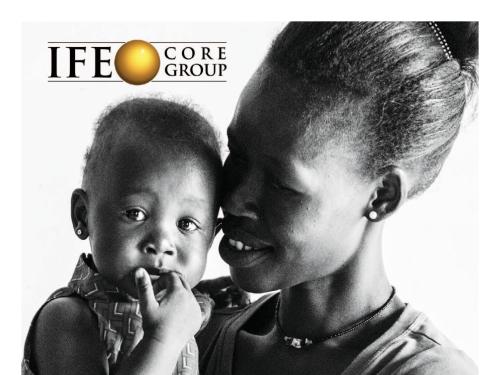
IFE Core Group Strategy 2020-2024
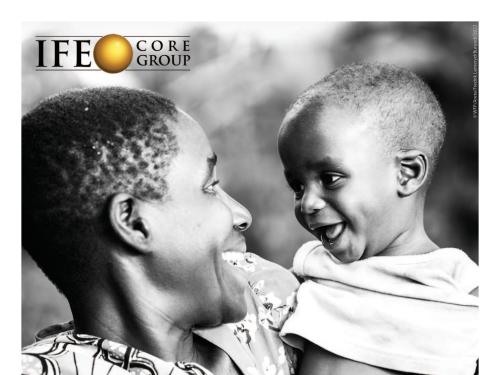
IFE Core Group Meeting Report 2021
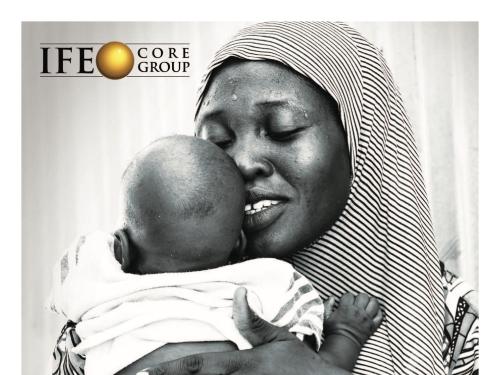
IFE Core Group meeting report 2020
